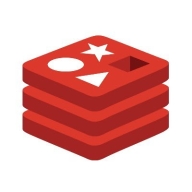

Find out in this report how the two Database as a Service (DBaaS) solutions compare in terms of features, pricing, service and support, easy of deployment, and ROI.


MongoDB Atlas offers a cloud-based database service known for speed, scalability, ease of use, and flexibility. Its robust features and advanced security measures support various business needs, making it ideal for unstructured data management.
MongoDB Atlas maximizes data handling capabilities by providing a seamless integration and high availability environment. The platform's schemaless architecture and rich query support make it suitable for complex data processing. With cloud-based infrastructure, deployment and maintenance are simplified, serving sectors such as healthcare, finance, and more. Organizations benefit from autoscaling, clustering, and APIs for effective project management. Continuous improvements in user experience, cost-effectiveness, query performance, and security are expected to meet evolving expectations.
What are the most important features?MongoDB Atlas is widely implemented in industries such as healthcare, finance, and technology. It serves applications requiring high availability and scalability, handling tasks from patient data management to real-time analytics. With its adaptable infrastructure, Atlas supports diverse use cases from IoT integration to transactional processing in cloud environments.
Redis is a high-performance, scalable, and easy-to-use caching solution that improves application performance. It is also used for session management, real-time analytics, and as a message broker.
Redis's valuable features include its ability to handle large amounts of data quickly, its simplicity and straightforward setup process, and its support for various data structures, providing flexibility for different use cases.
We monitor all Database as a Service (DBaaS) reviews to prevent fraudulent reviews and keep review quality high. We do not post reviews by company employees or direct competitors. We validate each review for authenticity via cross-reference with LinkedIn, and personal follow-up with the reviewer when necessary.